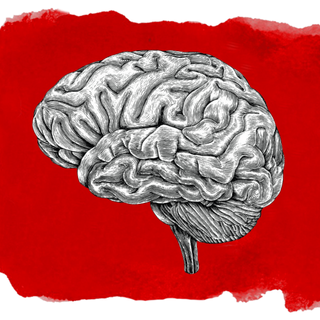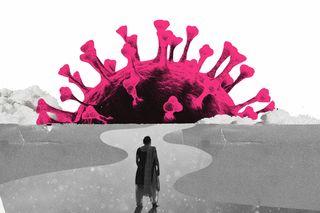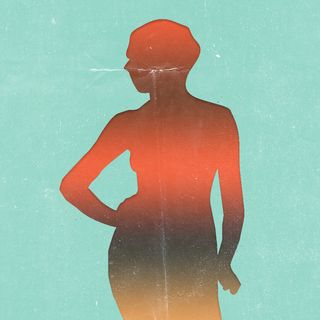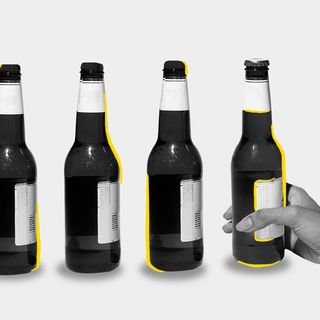
‘Long Covid’ Patients In India Are Struggling, But Their Plight Remains Unseen
“With widespread understanding and acceptance, I wouldn’t feel too guilty for taking so long to recover.”

Aditi* struggled for weeks to prove her post-Covid19 symptoms were real. Doctors told the 24-year-old she had “anxiety” when she complained of continued breathlessness; they claimed she had no post-Covid complications because hers was a relatively mild Covid19 infection.
“I know what anxiety can feel like — and this was different,” she says. It took changing doctors multiple times to finally realize she has what is being called long Covid19 — characterized by a range of chronic symptoms that can last long after infection.
In April, patients globally reported as many as 204 symptoms of post-Covid complications. These come in varying permutations and combinations; not everyone suffers from each symptom. Many develop a cluster of several issues that impact physical and mental health — and quality of life.
Within the Indian healthcare system and societal discourse, especially, long Covid remains relatively invisible. The national focus is on vaccinations, new waves, and national recovery; the personal focus is on moving on, as work and social culture insist on pre-Covid19 behavior and getting back to “normal.”
To never be able to fully recover, thus, carries with it inexplicable anxiety and loneliness. For Ambar, 23, the symptoms of the infection started from April and have persisted since.
“While I’m a lot better,” he says, “a large part of me is still missing.”
***
Related on The Swaddle:
Breathlessness, Fatigue May Continue For Up to 6 Months Post Covid19 Recovery: Lancet Study
The misunderstanding and lack of recognition surrounding long Covid is partly due to its vague definition — formally, the condition is understood to exist when symptoms exceed three weeks and don’t fit other characterizations. But having so many symptoms all bundled into one condition make it hard to gauge the definite impact of each individual symptom.
“With long Covid19, the symptoms are very generic, but because they cannot be differentiated with a precise scale of measurement, a lot of patients are being misdiagnosed,” says Aditi.
A wildly popular misconception around long Covid is that only people who had a severe Covid19 infection and were hospitalized will continue to experience symptoms in the long run. But emerging evidence has shown people with asymptomatic or mild infections also continue to experience one or more markers of long Covid19.
It took Aditi weeks of research, scouring videos online, reading research papers to circle in on the elusive cause of her weakness. Other patients too attest to a similar struggle to “prove” to people their suffering. This is made harder by the fact that persistent symptoms, like brain fog and exhaustion, don’t have tangible markers in diagnostic investigations.
“It’s so difficult to explain to people what I feel,” she says.
Fatigue or loss of smell may seem like trivial inconveniences — but for Covid19 survivors, it’s a daily struggle. For Kartikeya, 25, the two-month-old infection has changed the way he eats. “My appetite is gone and I have lost 12 kgs in these two months. Plus there is no smell, so nothing is particularly appetizing. When it comes to taste, I can distinguish sweet from salty but I can’t distinguish most food items from each other.”
Others experience more painful physical symptoms, such as body and muscle aches. Rimil, 26, tested positive on April 22, and now, the sharp pain, headaches, rashes, and cough all make her daily life an obstacle course. Walking up the stairs, cooking, standing for more than 20 minutes, talking for more than 30-45 minutes, or even typing — “normal” activities — sap her energy. Rimil is undergoing physiotherapy to slowly maneuver through this; she acknowledges that her body and ability to cope have changed.
Ambar relates with this exhaustion. With lingering Covid fatigue, he finds even small and menial physical tasks overwhelming. “On days when I have a few meetings or if I have work that requires me to concentrate hard, then it generally renders me completely exhausted by the time work ends,” he says.
Long Covid patients also continue to face the social stigma associated with the virus.“The infectious nature of Covid19 ensures that social stigmatization of patients is rooted in a fear of contagiousness, accompanied by beliefs that patients are to blame, and thus responsible, for their disease,” Aranka Ballering, Tim Olde Hartman, and Judith Rosmalen write in their paper, Long Covid19, persistent somatic symptoms, and social stigmatization.
“The phenomenon of perpetuated blame is especially salient given the longevity of Covid19 symptoms in some patients after their infection has cleared.”
Limited understanding and awareness of long Covid lead to an apathetic, half-hearted response to survivors. New research also showed that women, more prone to long Covid, were often dismissed when they complained of body ache or pain — with symptoms linked to “psychological” origins. “There are anecdotal reports of female patients complaining that their persistent symptoms have been dismissed or attributed to anxiety,” David Cox notes in The Observer.
Rimil believes that the “expectations people set about others’ health” impact the lack of compassion and empathy shown to survivors. In the past few weeks, she has heard various versions of ”You should be fine now, it’s been so long!” or ”It’s all about mental strength. If you’re mentally strong enough, you can conquer the physical difficulties too.”
“This stems from dualistic thinking, that is, the body-versus-the-mind idea, which allows others, including healthcare professionals, to assume patients should ‘toughen up’ as apparently nothing is physically wrong,” offer Ballering, Hartman, and Rosmalen.
As a result, the internal pressure to recover experienced by survivors is heightened. “I find I’m reluctant to cite exhaustion from Covid as an excuse out of fear of not being taken seriously. I know many people that had their tryst with the virus but recovered completely including my parents, in contrast, it makes me wonder if I’m just being whiny,” says Ambar.
All this makes people less likely to seek medical help for their issues, resulting in worse general health and quality of life for survivors.
Ambar anticipates people suffering from long Covid might be more prone to developing mental health issues — a trend researchers in the West are already confirming. People experiencing prolonged symptoms are more likely to experience long-term medical burdens in the form of anxiety, PTSD, and suffer from neurological disorders, according to a study.
***
Related on The Swaddle:
Why Some Covid19 Infections Last Weeks, Months, and Others Last Only Days
But it’s not only fatigue and breathlessness — the virus also weakens one’s emotional and cognitive skills. Long Covid19 patients report severe “brain fog,” more frequent headaches, and trouble sleeping.
Right now, with people already struggling to focus, this mental and physical impact on long Covid19 survivors also changes their relationship with work, which has taken the shape of Zoom meetings and work-from-home schedules. “To not trust what my brain has read initially. It’s quite a strange sensation,” Ambar says. Without physical and emotional reserves, addressing cognitive problems becomes especially difficult.
“Days that I would call normal now seem to completely exhaust me — to a point where I cannot do anything else in my free time.”
Long Covid best resembles a meandering hill. People often go through phases of feeling better — before they relapse. Good days depend on active symptoms on a given day.
The scientific consensus is it’s too early to tell whether patients can recover completely — a claim further made complicated with new variants. But the prevalence of long-term complications is telling of the massive burden the disease is likely to have in the coming years.
It shouldn’t be a battle uphill, all alone. Community support and understanding in the form of awareness, discussion, and compassion for people who will most likely experience symptoms for months and years to come has a huge role to play.
According to Rimil, there needs to be an understanding that “no one wants to feel unwell, they’re feeling so because they are unwell — it’s as simple as that.” The physical burden of Covid19, and its complications, is part of her story; the stigma and social isolation of Covid19 exacerbate this loneliness of those who haven’t recovered.
In practice, clinical response to long Covid is slowly coming up. Tamara Fong, who runs a Covid19 clinic in the U.S., noted treating long Covid patients resembled treating those with physical brain injuries. “Doing too much too fast is like trying to run a marathon without training,” she notes in The Atlantic. Her protocol looks something like this: administering good sleep hygiene, limiting daytime naps and screen time, reducing stress. Post-Covid clinics have been functioning in the U.S., U.K., and other western countries; some have started to come in metropolitan cities in India. But the research and treatment are still in nascent stages.
If long Covid19 is a puzzle, societal support remains an integral piece of navigating the condition. Experts say an important element in recovery is to remember the final picture might look different for different people — routes to recovery may or may not intersect.
Ambar sums up the co-existence of hope and exhaustion: “Hopefully, with widespread understanding and acceptance, I wouldn’t feel too guilty for taking so long to recover.”
*Name changed to protect identity
Saumya Kalia is an Associate Editor at The Swaddle. Her journalism and writing explore issues of social justice, digital sub-cultures, media ecosystem, literature, and memory as they cut across socio-cultural periods. You can reach her at @Saumya_Kalia.
Related


How I Have Sex: ‘I Like Someone For Who They Are, Not What Their Genitals Look Like’
